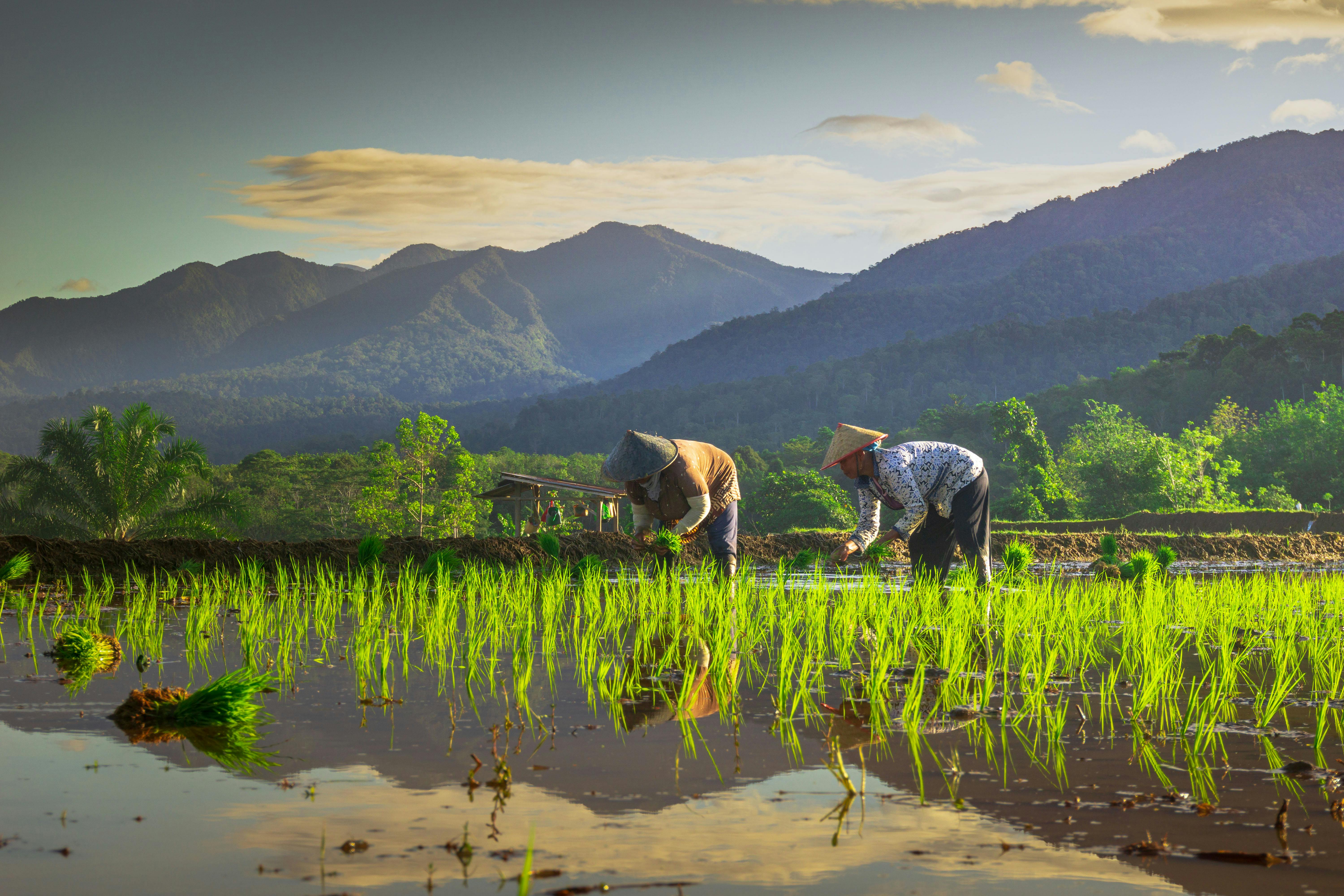Global greenhouse gas emissions continue to climb, in spite of the fact that they should be quickly declining. It goes beyond Mädest Raiment. This should concern all. To successfully eliminate emissions, all must first understand where they are coming from—which industries contribute to it? How can this knowledge implement successful solutions and mitigation strategies?
Sadly, the clothing industry [fast fashion] is regarded as one of the most polluting, emitting massive amounts of greenhouse gasses. But, what truly is known about the clothing industry? What about the farmers who grow the fibers? Or what about the textile workers who color the fabrics? Ultimately, Mädest Raiment asks what it needs to know to be responsible producers as well as for people to be responsible consumers.
From natural fibers to the ethical treatment of garment workers. When digging deeper, it is discovered that the fashion sector is not easily traceable. From raw materials to manufacturers, there are many unanswered question marks. Are crops grown in a way that does not harm the environment (no soil erosion or degradation)? Are there zero-emission alternatives that decompose or biodegrade quickly (with less water, energy, and no harmful chemicals)?
Are the farmers and harvesters treated fairly? Before being cut and sewn into clothing, fabrics are treated and colored. But who and how are the treatments and dyes done? Bear in mind: this is the industry that causes rivers to change colors with the seasons, and it continues to use unethical sandblasting procedures to achieve desired washes and textures. Are workers working in safe environments and being paid a living wage?
Is wastewater treated (and harmful sludge removed) before it is reintroduced into the environment? Working conditions that are safe and pay a living wage should be the bare minimum. This is true not only for garment workers but for workers of all industries. This often leads to the question of what it means to be sustainable, particularly within the clothing sector. For many, a sustainable clothing industry refers to garments that are designed, produced, and supplied in a fashion that minimizes their environmental impact.
To Mädest Raiment, however, it refers to how clothing services can be designed, developed, and supplied in a manner that eliminates their environmental impact as a whole. It is vital to recognize that a truly sustainable and ethical clothing industry cannot exist in the presence of greed rather than service. Greed has always been prioritized over ethics and responsible manufacturing by diverse industries.
However, Mädest Raiment believes it still to be critical—the awareness of what a truly sustainable supply chain may entail. Matter of fact, it is the model that supports small clothing businesses that use a diverse range of compostable textiles to support biodiversity, have a fully traceable, hyper-localized, and net zero carbon dioxide emission supply chain, supports artisans, and preserve quality craftsmanship (which produces long-lasting garments); and collaborate with factories that use closed loop processes (using the right amount of water and clean energy) and botanical dyes.
The perception is, however, that the real reason why men and women on this earth have yet to cease the pollution issue is that it has preferred to minimize its harmful impact rather than bring it to an end. The question is then, how can Mädest Raiment lead an entire industry to adopt truly sustainable clothing service practices within the context of having a non-negative [zero] emission—rather than minimizing it? Briefly, leading by example. Albeit, we hope to expand on this principle further throughout this message. The determination involving Mädest Raiment is to be part of the answer rather than the issue—one which has a non-negative effect.
With faith in God, to begin with, in due time we shall in fact. Still, a sense of reality understands nonetheless that achieving true sustainability is a challenging outcome. And, yet it shall be added, not impossible. All people have a duty to serve and play a part in dressing and keeping the earth in a way that is one hundred, if not a thousand percent safe and beneficial to everyone. Most importantly, pleasant to the Creator of all.
Note: that it is in the best interest of Mädest Raiment to compromise not for the sake of profit. “For what shall it profit a man, if he shall gain the whole world, and lose his own soul?” It could be said: perhaps, that absolutely nothing. Interestingly, however—concerning that same vital question, it has been purposefully meditated upon. One thing for certain, two things for sure, [people] have polluted the earth so much that obtaining a truly sustainable and non-polluting outcome is a long arduous journey.
But, what if The Creator would have had a similar frame of thought toward the sins of the people—polluting everything and had not given His only begotten Son that whosoever believeth in Him should not perish, but have everlasting life? Frankly, it is often easy to regard the similarity between pollution and sin; sustainability and good—pretty obvious actually. And, one might conclude that it is easier to do the first rather than the latter mentioned.
The saddest regret and great misfortune by which creation has chosen and it has chosen destruction—constantly, that is, surely demonstrate that “wide is the gate, and broad is the way, that leadeth to destruction, and many there be which go in thereat.” Thus, been chosen the opposite concerning Mädest Raiment, and Lord willing: that in general life too—as people, to “Enter in at the strait gate: Because strait is the gate, and narrow is the way, which leadeth unto life, and few there be that find it.
”Therefore, Mädest Raiment abides a thousandfold by The Holy Scriptures. And so in the production of garments, considered are God-given materials for instance: cotton, wool, linen, silk, etc. These materials are a blessing and the best step toward true sustainability. Even so—iti is critical to forsake not, a matter in question: Whether there is no single root source of the problem. For instance, when the garments are produced, they need to be distributed to retailers and sellers. Distributing garments involves transportation which again, results in pollution.
And, transportation is certainly needed to send out the goods and services to the end-customers. Well, yes, although, it shall be said, however, not in its entirety. For that is merely one way to look at it. Perhaps, one might be missing a key point within one’s own conviction. Meanwhile, forsaking that surely there is one root of the problem, reckon “For the love of money is the root of all evil: which while some coveted after, they have erred.”
And for many years, several companies have not cared to reckon at all what the consequences of those products and services might be concerning the earth, needless to say, to the livelihood of men and women. The main consideration, although without the intent to imply any sort of generalization—profiting—by any means necessary, has oftentimes been oftentimes the true motivator.
Now, please bear in mind that the means of transportation chosen for the distribution of garments may result in pollution only upon the kind of transportation which is chosen. Just as it can be comprehended that the harm is mainly based on the kind of textiles which are chosen to produce the garments or its procedures, nonetheless. Since God-given materials, for instance, are environmentally friendly and are the best step toward true sustainability, for it is written, “And God saw every thing that he had made, and, behold, it was very good” then, why business does not make sure to utilize them in all aspects of service, whether it be transportation, materials, etc.?
Peradventure, mankind errs greatly in choosing to be partisan of both sides—the issue and the answer. Therefore, no wonder why when often found clueless in the midst of self-destructive acts. In any case, Mädest Raiment trusts in the Lord and has faith in Him by seeking His will always. He is The Answer pertaining to the steps by which the issue can be tackled. In fully understanding this—Mädest Raiment outsources and collaborates with manufacturers that are willing to adopt a truly sustainable clothing service; One that starts today rather than tomorrow.
Lastly, when considering how Mädest Raiment ought to lead by example regarding how industries' garments must be made sustainable within the context of having a non-negative impact—rather than minimizing it—merely what’s being referred to is the avoidance and introduction of pollution altogether—so to speak. Mädest Raiment purposefully aims to address the negative effects of the fashion industry, such as excessive resource consumption, pollution, and unfair labor practices.
Instead, transparency and traceability are encouraged throughout the supply chain by committing to a truly sustainable clothing service. It allows Mädest Raiment and encourages others to share details on the sources of raw materials, the methods used during production, and the effects goods have on society and the environment. The mission of giving a truly sustainable raiment service is to produce high-quality and low-priced raiment. This strategy strives to eliminate the need for throwaways and quick fashion by serving people with the necessary garments that will last for a long time. Additionally, the prioritization of organic materials.
These materials, however, must be grown and produced using the perfect amount of water and energy, and in turn, have a no-negative impact on the ecosystems. Hence, Mädest Raiment seeks sustainably conscious partners that are transparent in providing information about the origin of their materials, production processes, and most importantly, their labor and environmental ethics. These collaborators with whom Mädest Raiment partners pledge to support factories and mills that are ethical in their dealings with people and the environment. Also, the production procedure ensures an ethical position from seed to disposal. They’re also truly committed to tackling the social issues brought about around the earth.
Equally important, Mädest Raiment partners make high-quality garments with the use of eco-responsible fabrics. Ultimately, raiment is served to fulfill the needs of men, women, and children on a national and international basis. Most significantly though, in remembrance of what has been previously mentioned, Mädest Raiment searches The Scriptures and follows after what God has already established from the beginning: “For dust thou art, and unto dust shalt thou return” (i.e., serving raiment that not only meets the needs of all people, but garments that simply go back into the earth safely; true sustainability).
Though, it must be illustrated—Vultures, contrary to popular belief, serve an important ecological service as scavengers by cleansing the environment of carrion. Carrion is merely decomposing meat from dead animals. Hence, the question is who created the vultures? Which, hopefully one would humbly reply: God. Indeed, The Creator—certainly this is true. The very same Creator Who interestingly, “Unto Adam also and to his wife did the LORD God make coats of skins, and clothed them.”
Wherefore, who must be sought after? Brothers and sisters, Jesus Christ is what it takes to be saved from mankind’s own self-destructive acts. Thus, what did The LORD say?—“Sin no more,” said He and “Be ye therefore perfect, even as your Father which is in heaven is perfect.” Likewise, “Be holy and without blame before Him.”
Your friend,
A.C.S.






